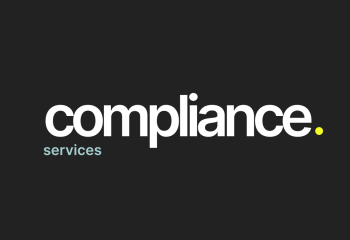[LEGAL UPDATE] KEY HIGHLIGHTS OF THE NEW LAW ON NOTARIZATION 2024
Views: 2476
(6).png)
Introduction
The Law on Notarization No. 46/2024/QH15 (the Law), consisting of 08 chapters and 76 articles, was passed by the National Assembly on November 26, 2024, and takes effect from July 1, 2025. The Law was developed to address the limitations observed during the 10 years of implementing the 2014 Law and to promote the digital transformation of notarization activities.
Key changes introduced by the Law on Notarization
-
Photographing & Archiving During Notarization Signing
According to Clause 1, Article 50 of the Law, and as implemented under Article 46 of Decree No. 104/2025/NĐ‑CP, it is mandatory to photograph the signing process in the presence of the notary.
The photograph must be clear, sharp, and resistant to fading or smudging; it must not be cropped, edited, or altered in terms of details or background. It must be printed on A4-sized paper (in color or black-and-white; for specialized photo prints: minimum size 13×18 cm).
Witnesses and interpreters must also sign and fingerprint the documents and be photographed similarly to the signatory. These visual records are an integral part of the notarization file, which must be preserved as per the Law (30 years for real estate transactions and 10 years for others).
-
Official Recognition of Electronic Notarization
The Law establishes two forms of electronic notarization:
-
On-site notarization: The requester enters into the transaction in the direct presence of the notary, who certifies it with a digital signature to create an electronic notarized document.
-
Online notarization: The parties to the transaction are not physically present at the same location but connect via an online platform under the direct observation of the notary, who certifies the transaction with a digital signature to produce the electronic notarized document.
These electronic notarized documents carry the same legal value as physical ones and comply with electronic standards, allowing seamless conversion between paper and electronic formats.
-
Age Limit for Practice & Training Requirements
Notaries reaching the age of 70 will be automatically dismissed. Those who are over 70 at the time the Law comes into force may continue practicing for a maximum of two additional years. If a notary is between 68 and 70 years old on the effective date of the Law, he/she may practice notary until he/she is 72 years old.
-
Professional Liability Insurance & Compensation Responsibilities
Notaries and notarial organizations are required to purchase and maintain professional liability insurance. Insurance documents must be reported to the Department of Justice within 10 days from issuance or modification.
Even after resignation or termination of practice contracts, notaries remain responsible for compensating damages if caused by faults during their practice.
-
Expansion of Notarization Scope & Removal of Translation Certification
The Law recognizes notarization of certain administrative documents (in addition to civil contracts). It abolishes the requirement to notarize translated documents—only the translator’s signature needs to be certified when necessary.
Key Advantages and Challenges for Businesses
The Law has been positively received for the following reforms: Electronic notarization enables faster transactions, lowers costs, and enhances integration through digital infrastructure. Increased transparency and user protection elevate the reputation of the profession. New regulations help standardize expertise, responsibilities, and mitigate professional risks.
However, these reforms also present significant challenges:
-
Implementation costs for photo recording systems, digital signatures, and multimedia storage may rise considerably.
-
Recurring insurance obligations and long-term compensation responsibilities may discourage notaries and organizations from handling complex cases, posing operational difficulties for businesses
HOW ALTAS CAN ASSIST YOU:
ALTAS LAW is uniquely positioned to assist your business in navigating these complex administrative reforms. We offer a comprehensive suite of legal and business services designed to provide seamless support during this transition period:
-
Accounting and Tax Services: We also offer accounting and tax services to help your business manage the financial implications of these reforms, including tax planning, reporting, and compliance.
-
Licensing & Regulatory Compliance: We will meticulously review your existing licenses and permits, advise on necessary amendments or renewals, and guide you through the process of obtaining any new approvals. Our team will also ensure your compliance with all relevant regulatory changes.
Please feel free to reach us via email contact@altas.vn to discuss your specific concerns and explore how we can navigate these reforms successfully.
--
Prepared by:
Lawyer Partner at ALTAS Law - Mr. Le Quang Lam & Senior Legal Associate at ALTAS Law - Nguyen Tran Ngoc Thach
Date: July 18, 2025














(6).png)















